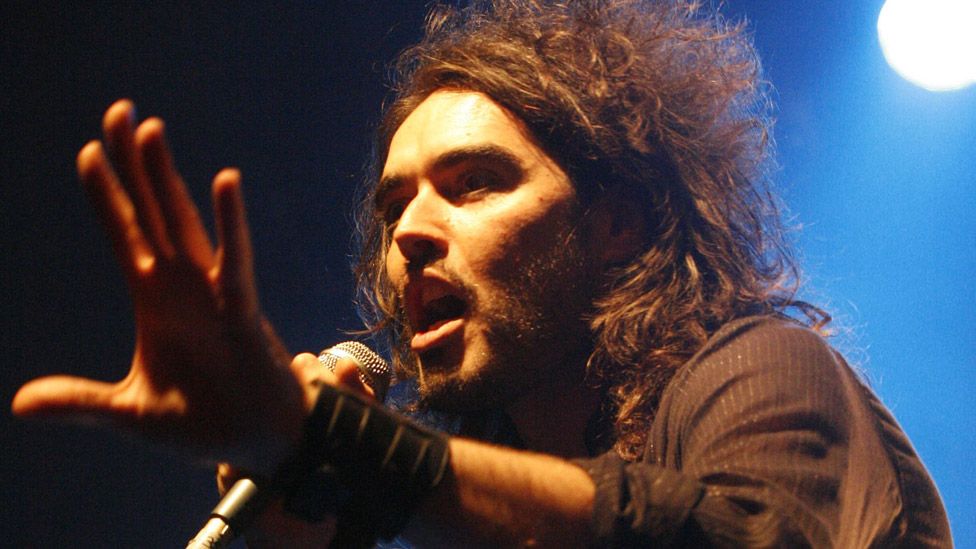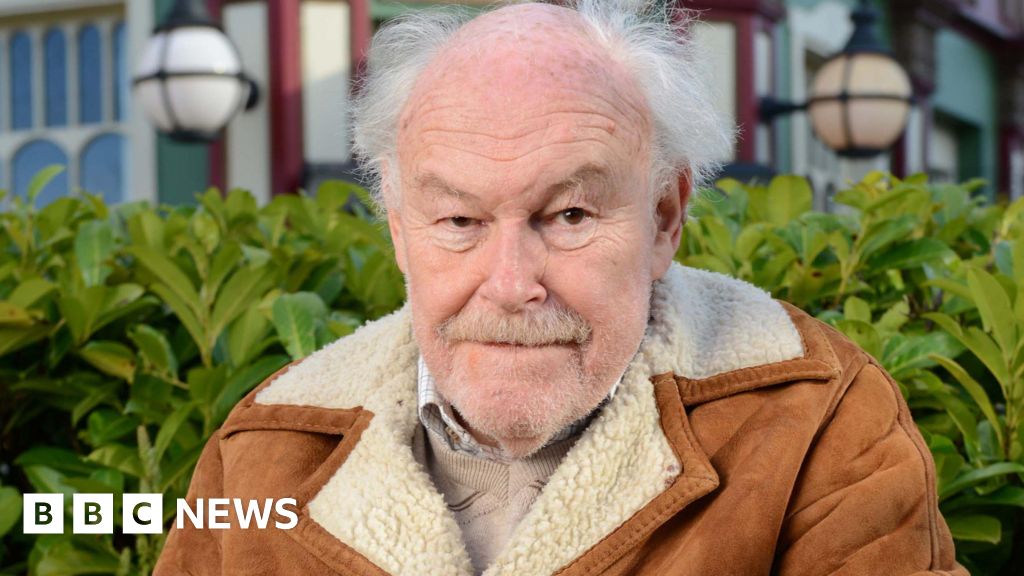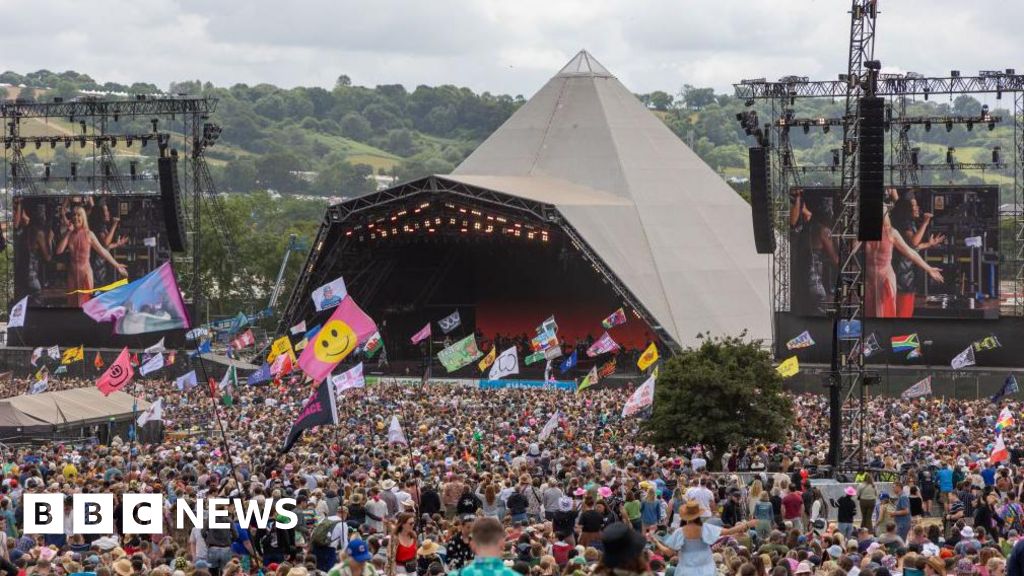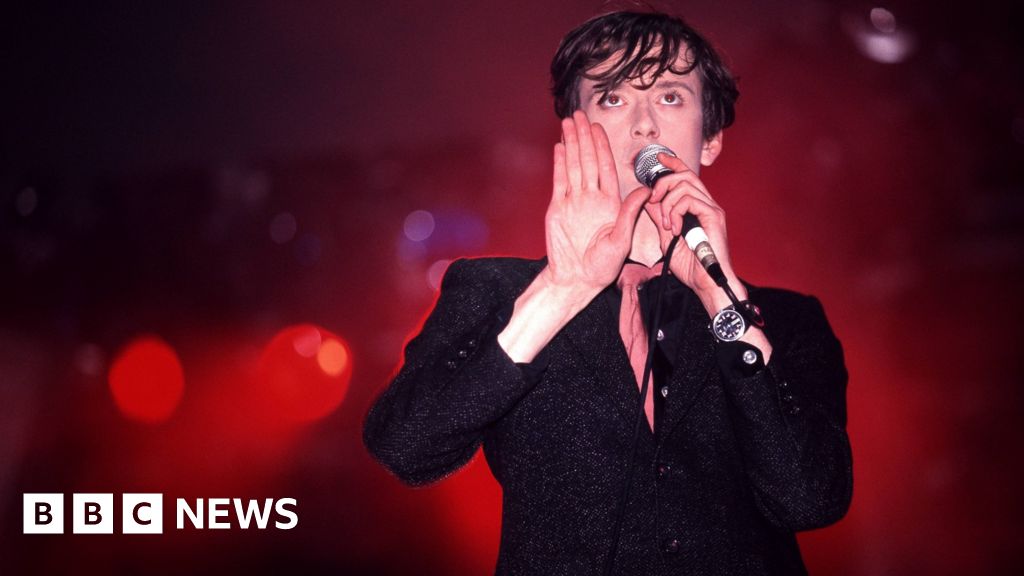ARTICLE AD BOX
 Image source, Getty Images
Image source, Getty Images
Russell Brand made his name in stand-up comedy in the early 2000s
By Ian Youngs
Entertainment & arts reporter
The noughties aren't so long ago that it's possible to dismiss them as a different age. But there are parts of the decade that British culture would rather forget.
Russell Brand was at the centre of a messy celebrity scene in the 2000s that now feels like the Cool Britannia party gone sour.
The recent allegations against the comedian, and resurfaced clips of things he said and did on air and on stage, have provided a sobering reminder of the seedier side of the pop and media culture in that decade.
Among the claims in Channel 4's recent Dispatches investigation into the star, there was a clip from his BBC Radio 2 show in 2007 that seemed to have gone largely unnoticed at the time.
In it, Brand interviewed Jimmy Savile and apparently offered up his "very attractive" assistant to go to meet him naked.
Image source, Getty Images
Image caption,Brand holding up the Sun newspaper's page three on stage in 2006
While the clip was from before Savile had been exposed as a serial sexual predator, it's scarcely believable now that it was broadcast on Britain's biggest radio station.
It's one of several clips of Brand pushing the line between outrageous and offensive that were used in Channel 4's documentary on Saturday, and that have since been widely shared and discussed.
Brand has strongly denied the central allegations of sexual assault and rape, saying his relationships were "always consensual".
The programme also reminded us how, also in 2007, Brand boasted of his sexual fantasies about an "erotic" Radio 2 newsreader, and exposed himself in the studio while urinating in a bottle in front of colleagues and guests.
'Not acceptable'
Former BBC One controller Lorraine Heggessey said she was "amazed" action wasn't taken at the time.
"It's not actually that long ago," she told BBC 5 Live on Monday. "This was the 2000s, so let's not think it was the dim and distant past. It wasn't.
"I don't think it would be acceptable to say anything like that. I'm amazed that it was acceptable at that time frankly. The output that I've heard breached all sorts of BBC guidelines."
Other clips saw Brand kissing an interviewer on the lips and trying to undo her bra, and an uncomfortably forward interview with model Caprice Bourret.
Writing in The Independent, Katie Rosseinsky said: "We just didn't bother to question it. In Brand's mid-Noughties heyday, remarks like this were seen as edgy, but acceptably so - they might have elicited nervous laughter, but laughter all the same."
Image source, Getty Images
Image caption,Brand with singer Amy Winehouse at the Q Awards in 2006
Author and columnist Sarah Ditum, who will next month publish a book called Toxic: Women, Fame and The Noughties, said "none of it looks good".
She was never a fan of Brand, she said. "But he was very popular. He was very valuable to the broadcasters he worked with, and an element of the public enjoyed his taboo-smashing kind of stuff."
In the early 2000s, the old media were competing with the internet for the first time.
"I think the presence of the internet had a kind of inciting effect, and the traditional broadcasters were willing to push the envelope and break norms," Ditum said.
"In some ways, it was a really creative, interesting time for television. But the other side of that is people acting with impunity."
Those resurfaced clips were still largely filmed before social media could send something viral. But the following year, another of Brand's Radio 2 broadcasts did not go unnoticed.
Image source, Getty Images
Image caption,Brand resigned from the BBC and Jonathan Ross was suspended following the 2008 Sachsgate scandal
When he and Jonathan Ross left obscene voicemail messages for Fawlty Towers actor Andrew Sachs about Brand's sexual relationship with Sachs' granddaughter, the ensuing outcry forced Brand to resign.
"I don't think the nastiness of it was really comprehensible to me at the time," said Ditum.
"I saw it more in the context of this escalating tradition of zoo radio - this brash, envelope-pushing environment, which has been taking place not just on the BBC but commercial networks as well.
"You go back to it now and you just think, that is outrageously horrible, and it's treating her as an object."
Noughties celebrity culture will be remembered for stars like Amy Winehouse and Pete Doherty tackling troubles in the glare of publicity, while the tabloids and lad mags wielded unfeeling and voyeuristic power.
Sexual double standard
Brand also battled addiction but came out the other side, and there was "100% a sexual double standard" that meant men had it easier than women, Ditum said.
While Brand was given the award for "shagger of the year" three times in a row by the Sun, women who were seen as promiscuous were "slut-shamed".
Rosseinsky wrote: "The [Dispatches] film serves as a grim indictment of the ingrained, quotidian misogyny of the Noughties, but it also emphasises how little has changed."
Revelations about abuses by Savile, Harvey Weinstein and others in the past decade have contributed to a culture change in the entertainment industry in many ways. But the problems caused by abuses of power are by no means fixed.
And they have also moved online. A new generation of celebrities are on social media platforms that don't have the same responsibilities as traditional broadcasters.
"If you want to be famous, then you would go on YouTube today. You would go on TikTok. You would make yourself into an influencer," Ditum said.
"There are some very grim stories that come out of the relationships between influencers and their followers. It's a heady atmosphere for grooming, because not only do you have the kind of coercive power and fame, you also have no surrounding responsible institution.
"So we're not living in a kind of beautiful, free and clear post-misogyny environment. But it has changed shape, and it has changed forums."

 1 year ago
52
1 year ago
52








 English (US) ·
English (US) ·